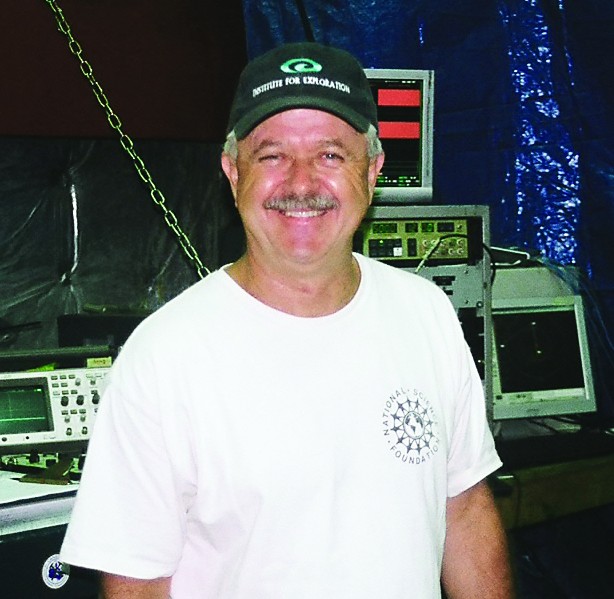UTIG Researcher Selected for International Scientific Leadership Role
May 19, 2015

James Austin, a senior research scientist and associate director at The University of Texas at Austin Institute for Geophysics (UTIG), has been selected as forum chair of the International Ocean Discovery Program (IODP), a coalition of 26 countries dedicated to studying some of the planet’s most important environmental and earth science topics by sampling sub-seafloor environments around the world.
The international consortium uses data recovered from sub-seafloor sediments and rocks to improve scientific understanding of changing climate conditions, the risks posed by geohazards such as earthquakes and tsunamis, the origins of ancient life, and the structure and processes of the Earth’s tectonic plates and uppermost mantle.
UTIG is an organized research unit at the UT Austin Jackson School of Geosciences.
As chair, Austin will serve as the face of the scientific ocean drilling program, representing the IODP at scientific meetings, and attending its facility board meetings and proposal evaluation panel meetings. Austin will also preside over the IODP’s annual forum meeting, where members from constituent countries discuss the scientific progress of the program. UTIG Director Terry Quinn said Austin is a great choice for the position.
“Jamie Austin’s career has been inextricably linked to scientific ocean drilling. He knows first-hand the value of the drilling program and will be a tireless advocate for its continued success as a model for international scientific collaborations,” Quinn said. “The ocean drilling community will be very well served with Jamie as the new Chair of the IODP Forum.”
Austin will officially begin his two-year term as chair on Oct. 1, 2015.
With a history starting in the late 1960s, the IODP is among the longest-running international collaborations in science. The consortium’s goal is to understand the Earth’s past and predict its future by taking geological cores from the seafloor. Each core acts as a logbook for the planet, enabling scientists to examine up to hundreds of millions of years of data on past climate, biology and geologic events.
Each member country has the opportunity to request access to the program’s resources, which include scientific research vessels, to further the community’s scientific goals.
“Scientific ocean drilling is like a kind of mini United Nations,” Austin said. “Every member country has a seat at the table. Everybody is entitled to make a statement. It’s one of the reasons I love it.”
Considering the breadth of the seafloor and its geopolitical borders, an international coalition is the only way it can be thoroughly studied, Austin said.
“You simply can’t study the oceans without doing it internationally,” Austin said. “You can go to space without doing it internationally because nobody owns it. But the oceans are almost completely claimed.”
In addition to fostering international collaboration, the IODP also helps to spread the costs of research by working with countries to pool their resources. Working together, the organization is able to fund a number of research expeditions a year, some of which involve Jackson School researchers, Austin said.
Austin has served the IODP in other leadership positions over the past 30 years. In 1994 he served as director and in 2004 as interim director. He also served twice as co-chief scientist for the Ocean Drilling Program, a pre-cursor program to the IODP; first as co-chief in the Bahamas in 1985 (the youngest scientist to hold the position at the time) and second as co-chief in the New Jersey shelf in 1997.
In addition to representing the IODP and assisting in evaluating its policies and proposals, Austin said the forum chair position will include working to raise research funding from supporters within the U.S. and the international community at large.
“If we’re going to study the oceans effectively, particularly in an era where we’re beginning to understand the role they play in controlling climate, programs like the IODP core drilling program have to continue,” Austin said. “Such cores are the only way we get the long-term view, millions of years, of climate history and change.”
For more information contact: Monica Kortsha, UT Jackson School of Geosciences public affairs representative, 512-471-2241; Anton Caputo, UT Jackson School of Geosciences communications director, 512-232-9623.
